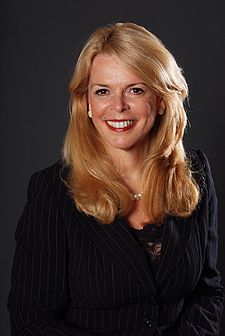Does good Betsy McCaughey exist?


In 1994 she succeeded, thanks to an article called "No Exit" published in The New Republic, then edited by Andrew Sullivan, to which she had been assigned by publisher Martin Peretz, an opponent of the Clinton plan.
Sullivan and his critics still debate whether that article had enough factual basis to merit publication.
The current effort is on life support, in part, thanks to her calling end-of-life counseling "death panels," a lie whose credibility allowed other falsehoods to dominate the recent debate.
Betsy Peterken McCaughey Ross's Wikipedia entry lists her profession as a "constitutional scholar" and conservative commentator. She is the daughter of a janitor, who won scholarships to boarding schools and Vasser.
When McCaughey uses the title "Dr.," it's based on her Ph.D from Columbia. Her thesis was on an early President of Columbia, William Samuel Johnson.
The name McCaughey uses publicly is that of her first husband, investment banker Thomas McCaughey, whom she divorced in 1994. Her second husband was billionaire investor Wilber Ross, whom she divorced in 1998.
Her stature in the current debate is based largely on her heading a group called the Committee to Reduce Infection Deaths. Before founding RID, she was Lt. Governor of New York under George Pataki. Before that she described herself as a housewife.
She is, in fact, less of a medical expert than I am, according to a profile on The Health Care Blog published last week by Michael Millenson of Health Quality Advisors LLC.
"It's a good cause -- at least on paper," Millenson writes of RID. But is it?
RID's main contribution to the debate on infection control was a March 2008 press release condemning a JAMA article on how MRSA might not be controlled by tests using skin or nasal swabs.
What RID did not mention in the release was that its founder, McCaughey, was at that time on the board of Cantel Medical, whose Crosstex subsidiary makes the test kits.
Critics called her work for Cantel a "pay for play" scandal, and in fact she resigned from its board last month.
As noted here in February, the truth about Betsy McCaughey may be found in her own words, near the bottom of her now-famous Bloomberg piece from February that made the false claim comparative effectiveness research will deny people needed care.
The health-care industry is the largest employer in the U.S. It produces almost 17 percent of the nation’s gross domestic product. Yet the bill treats health care the way European governments do: as a cost problem instead of a growth industry.
Betsy McCaughey is what she has always been, an industry lobbyist. To call her anything else, to refer to her as "Dr. McCaughey," is to endorse a deception.
The question is now whether industry lobbyists like McCaughey, and rhetoric that caused such a violent reaction on the part of innocent people, are going to win the day.